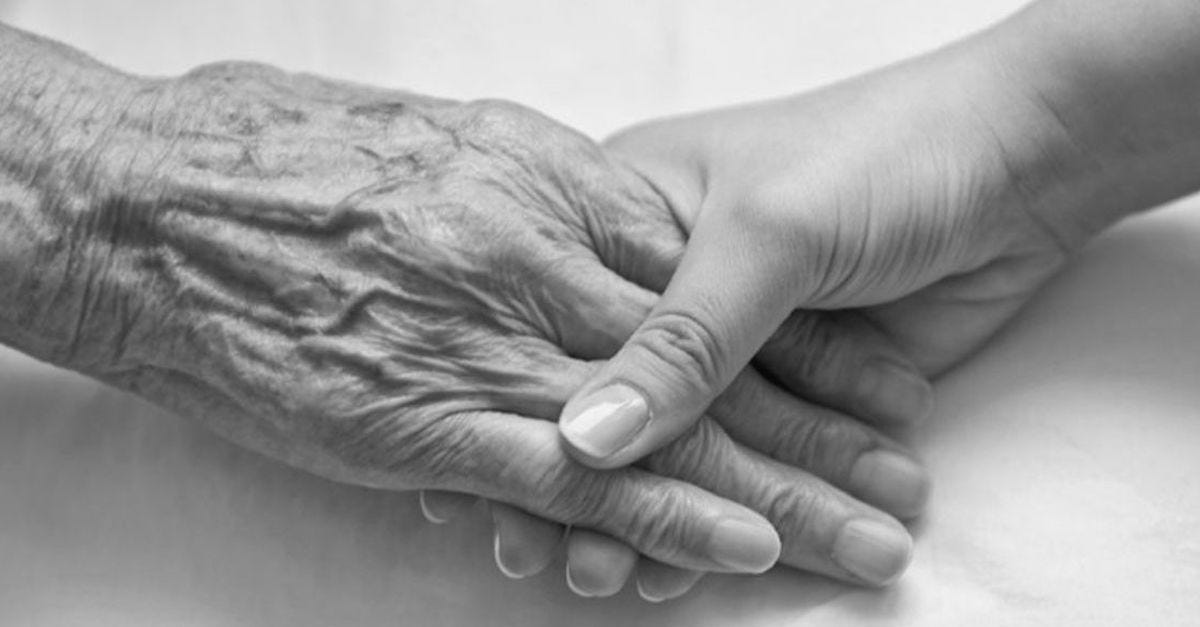“Because it was a never a good time to talk about death, it became hidden away.”
As a daughter, a doctor, and a federal healthcare policy advisor, I’ve seen how death is hidden away.
Almost exactly 20 years ago, my father was diagnosed with intestinal cancer.
After multiple rounds of failed chemotherapy and a weeklong stay in the ICU, it became clear that time was short.
It was overwhelming.
And yet, during that entire experience, we never once as a family sat down to talk about what was happening.
It was never a good time. And since it was never a good time, discussing what the end of my father’s life would, should, or could look like slowly became hidden away.
My father passed away in a hospital room, connected to lines and tubes, and I can’t help but think he would have wanted something different.
Why don’t we talk about death?
When talking about death, we do so with either no urgency at all because the conversation feels premature, or tremendous urgency after a sudden, massive decline in health, in which case it’s likely too late.
In addition to not knowing when to talk about death, we don’t know how. It’s difficult. It stirs up difficult emotions. And so we grow up not knowing how to discuss death. Not with adults, definitely not with children.
And yet, the data tells us that people think about their end of life wishes all the time.
A study from the Kaiser Family Foundation and The Economist found that nearly 80 percent of people have thought about their wishes at the end of life, but fewer than 20 percent actually discussed those wishes with their healthcare provider.
Why is that?
We’re terrified of death
What shapes the experience of death and dying in America?
I see three major influences: culture, medicine, and our medical systems.
Culture refers to how we think and feel about death. We’re terrified of it. We are afraid to talk about it, afraid to think about it, afraid to lose to it.
Medicine is used to avert death. Our medical establishment is designed to prolong life. It falters when confronted with the one thing it can never overcome: death.
And our medical systems, which care for those nearing the end of life. Often unintentionally, these systems disregard individuals’ values and oversimplify complicated choices.
We have to do better.
Death is a human experience
It is as human as it gets.
Every day in America, 2.4 million people die. That’s more than 1,600 people every minute.
And those things that scare us the most about death — vulnerability, decline, meaning, legacy — are at the core of what it means to live and to be human.
Wouldn’t it be nice if by reframing death as a human issue we could move to a world where death is discussed, end of life wishes are known, care is individualized and person-centered, and values are articulated?
Getting to that place requires a deliberate and thoughtful transition in our culture, our practice of medicine, and our systems of care. And the time to change is now.
The time to talk about death is now.
Aditi Mallick, MD, is a board-certified internist, practicing hospitalist and Assistant Clinical Professor of Medicine at the George Washington University School of Medicine and Health Sciences. A consultant to McKinsey & Co., she previously served as Senior Medical Advisor for Clinician Engagement at the Centers for Medicare and Medicaid Services (CMS) in the U.S. Department of Health and Human Service, co-leading efforts to reduce clinician burden as a means of achieving more efficient, more patient-centered care. She shared this story during her 2017 End Well talk.
This article is part original, part transcript of the 2017 End Well Symposium talk given by Aditi Mallick, MD. You can view Aditi’s full End Well talk here.
